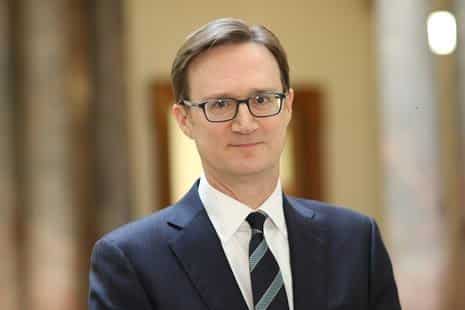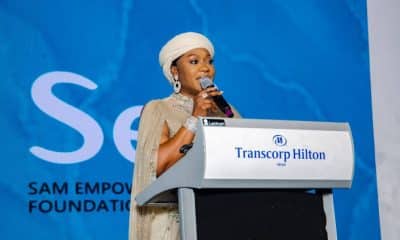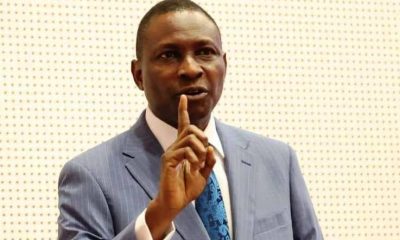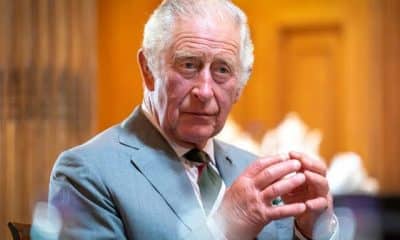Nigeria News
UK Partners With CBN, NFIU To Track Illicit Financial Flows – British High Commissioner

The United Kingdom has intensified its collaboration with Nigerian agencies, including the Central Bank of Nigeria (CBN) and the Nigerian Financial Intelligence Unit (NFIU), to curb illicit financial flows.
This was revealed by the British High Commissioner to Nigeria, Richard Montgomery, during a policy discussion on Nigeria’s anti-corruption efforts organized by Agora Policy in Abuja.
Montgomery emphasized the UK’s commitment to supporting Nigeria’s fight against corruption, which he described as a force that deepens poverty, raises business costs, and erodes trust between citizens and government institutions.
Partnerships to Track Illicit Financial Flows
Highlighting the ongoing efforts, Montgomery disclosed that the UK’s National Crime Agency (NCA) has been working closely with Nigerian anti-graft agencies, such as the Economic and Financial Crimes Commission (EFCC) and the NFIU, to trace and recover corrupt assets linked to UK jurisdictions.
“We have a productive relationship under the present leadership with the Central Bank of Nigeria and the Nigerian Financial Intelligence Unit on tracking illicit flows. We try to go up after illicit financial flows and corrupt assets where they touch from UK jurisdiction,” Montgomery stated.
Building Beneficial Ownership Registers
Another key aspect of the partnership is the development of beneficial ownership registers in Nigeria.
This initiative aims to identify the true owners of companies, thereby enabling regulatory and law enforcement agencies to combat corruption more effectively.
The High Commissioner stressed that understanding who owns and controls companies is essential for tackling financial crimes.
Support for Extractive Industry Transparency
Montgomery also lauded Nigeria’s progress in advancing transparency in its oil and extractive sectors through the Extractive Industries Transparency Initiative (NEITI).
He acknowledged strides in tracking licensing, revenue, and expenditure information but noted that more effort is required to attract investments and ensure comprehensive transparency in the sector.
Tackling Global Financial Secrecy
Recognizing the role of the UK’s financial sector in global financial secrecy, Montgomery assured that the UK government is committed to addressing financial crime at both domestic and international levels.
He acknowledged that while the UK supports Nigeria’s anti-corruption fight, the most significant change must come from Nigeria’s own institutions and leadership.
World Bank, EFCC, and Agora Policy Call for Holistic Action
At the event, Dr. Ndiamé Diop, World Bank Country Director for Nigeria, stressed that the lack of accurate data within Nigeria’s Federal Government hampers the generation of timely and automatic fiscal reports.
Dr. Diop, represented by Deborah Isser, a Lead Governance Specialist at the World Bank, highlighted the need for data-driven transparency in public finance.
Adding to the discourse, Prof. Adele Jinadu, a Political Science professor, asserted that only a holistic approach could effectively tackle corruption in Nigeria.
Anything short of this, he argued, would be a waste of effort and resources.
Mrs. Adejoke Liman, Director of the Policy and Research Department of the Economic and Financial Crimes Commission (EFCC), represented EFCC Chairman Ola Olukoyede at the event. She described corruption as a vast enterprise involving theft of public resources at all levels of government.
Liman stated that the EFCC has made a conscious effort to use its anti-corruption mandate to stimulate the economy and support social investment programs.
Call for Sustained Anti-Corruption Advocacy
The Board Chair of Agora Policy, Ms. Ojobo Atuluku, stressed that the fight against corruption must not be relegated with a change in government.
She urged stakeholders to remain committed to anti-corruption advocacy, regardless of political transitions.










